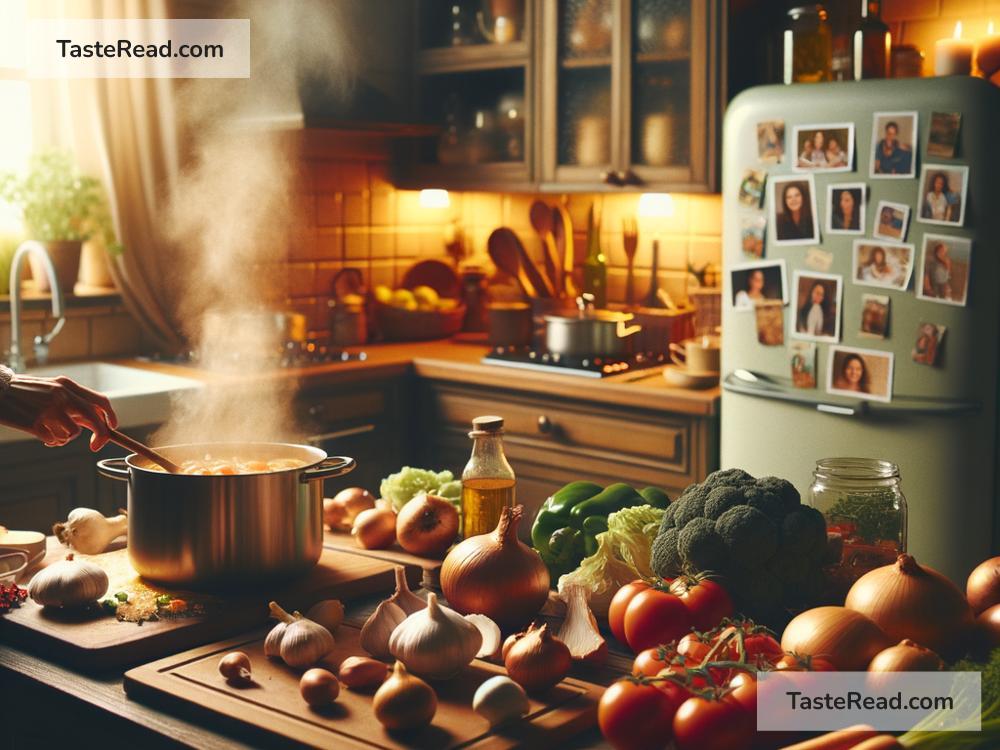Cooking Through Grief: Finding Comfort in the Kitchen
Grieving is a tough process that looks different for everyone. It’s a time filled with a roller coaster of emotions – sadness, loneliness, confusion, and even anger. However, amidst these challenging emotions, people often find solace in unexpected places. One such comforting haven can be the kitchen. Yes, cooking, baking, and simply being around food can provide a unique form of comfort during times of grief. Let’s explore how the kitchen can become a source of solace and healing during tough times.
The Therapeutic Power of Cooking
When you’re grieving, every day can feel like a battle. It’s exhausting, and sometimes, even the simplest tasks, like making your bed or taking a shower, seem monumental. However, cooking offers a unique form of therapy that doesn’t ask much from you. It’s a soothing routine – the chopping, stirring, and tasting – that requires just enough focus to keep you engaged but not overwhelmed. This rhythmic process can be meditative, calming the mind, and momentarily easing the burden of grief.
Moreover, cooking invites creativity. Grieving can make you feel like you’re stuck in a dark place with no control. However, the kitchen is a space where you’re in charge. It’s up to you to decide what you’ll cook, how you’ll tweak the recipe, and what flavors you’ll play with. This creativity is empowering. It’s a reminder that despite the chaos, there are still aspects of your life that you can control.
Memories and Foods: The Unbreakable Bond
Food has a magical way of evoking memories. For many, certain dishes or flavors are strongly linked to loved ones or cherished moments. In cooking, you have the power to bring these memories to life. Preparing a dish that your loved one enjoyed can feel like a way to connect with them, to keep their memory alive in a tangible, nourishing form.
Sometimes, it’s not about a specific dish but rather the act of cooking itself. Maybe your family spent a lot of time cooking together, or perhaps your loved one was an exceptional cook. By stepping into the kitchen, you’re stepping into a space filled with memories, continuing traditions, and honoring their legacy in your own unique way.
From Solitude to Sharing: Cooking as a Bridge
Grief can be isolating, but cooking offers a bridge back to the world. In the beginning, you might find comfort in cooking just for yourself, enjoying the solitude and the personal connection to your loved ones. However, as time goes on, cooking can also become a way to reconnect with others.
Sharing a meal you’ve cooked can be incredibly powerful. It’s an act of love and generosity, a way of opening up and letting others into your world. Inviting friends or family over for a dinner not only helps strengthen your support network, but it also creates new, positive memories around food. It’s a reminder that even in the midst of grief, there can be moments of joy and togetherness.
Finding Healing in the Everyday
Ultimately, the healing power of cooking lies in its simplicity and accessibility. You don’t need to be a gourmet chef or have a fancy kitchen. Even the simplest of meals, made with care and intention, can offer profound comfort. It’s about finding joy in the everyday act of nourishing yourself and others, celebrating the small victories, and cherishing the memories evoked with every bite.
Grief is a journey with no clear timeline or roadmap, but finding small ways to cope, like cooking, can make a significant difference. Whether it’s the act of cooking itself, the memories it evokes, or the connections it helps foster, the kitchen can indeed become a place of comfort and healing during tough times.
So, the next time you find yourself overwhelmed by grief, consider stepping into the kitchen. You may just find that in the act of cooking, you’re not only making a meal, but you’re also taking a small step towards healing your heart.


